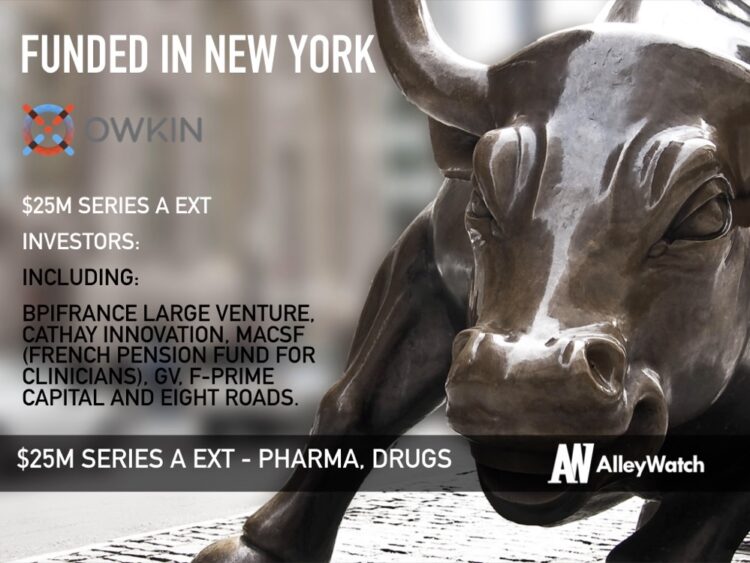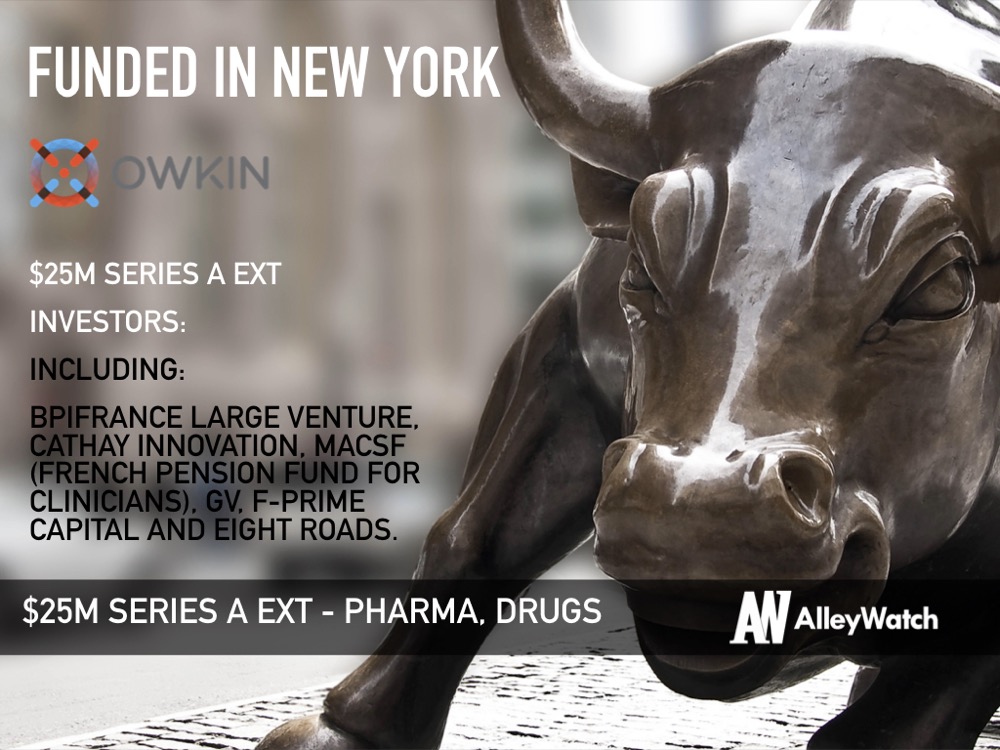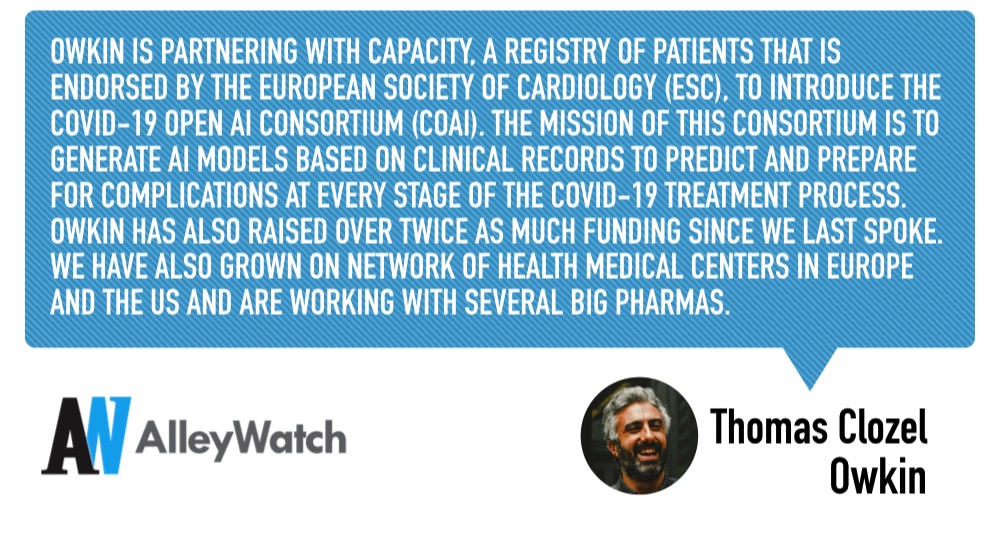Imagine what a collaborative platform like Google Docs would look like for researchers at hospitals, universities, and pharmaceutical companies and you can begin to understand the potential of Owkin and its research platform Owkin Studio. Through machine learning and AI, Owkin allows researchers to extrapolate new insights as a collaborative platform while maintaining privacy as none of the parties have true access to the data. Due to its strict security protocols, Owkin ensures that all uploaded data sets remain private, but its deep-learning algorithm is trained to work on this data and achieve a similar performance level as if using pooled, transparent data.
AlleyWatch caught up with CEO and Cofounder Thomas Clozel, MD to discuss Owkin’s latest product development Covid-19 Open AI Consortium (COAI), which is focused on advancing therapies at every stage of the virus’s prognosis, the company’s future plans, and recent round of funding, which brings the company’s total funding to $56.1M across five rounds since its founding in 2016.
Who were your investors and how much did you raise?
$25M through an extension of our Series A funding round from Bpifrance Large Venture, Cathay Innovation, MACSF (French Pension Fund for Clinicians), and previous investors GV, F-Prime Capital, and Eight Roads.
Tell us about the product or service that Owkin offers.
Owkin has created a research platform called Owkin Studio that helps researchers generate new biological discoveries and accelerates the development of better therapies without centralizing data. Through AI and federated learning, Owkin can train a deep-learning algorithm at a similar performance level as if using pooled data. This lets the owners of sensitive data, such as hospitals or research institutions, maintain complete privacy and security while letting others using this system reap similar benefits to what they would achieve with access to said sensitive data.
What inspired the start of Owkin?
As an assistant professor in oncology, I was struggling to accelerate my medical knowledge even though I witnessed the acceleration of data creation thanks to new medical imaging and omics technology. I discovered the power of machine learning to augment research and accomplish things humans can’t: seeing a new prognostic biomarker in a pathology slide, predicting mutations based on images, discovering a prognosis from a phenotype using genomics data and so much more.
Decentralization, respect of privacy concerns, and federated learning are both the significant differentiators and competitive advantages for Owkin. While companies are scrambling to aggregate sensitive patient data regardless of consequence, Owkin is offering an alternative that poses similar benefits and less risk.
What market does Owkin target and how big is it?
We are targeting the pharmaceutical industry. Our partnerships in academia and hospitals join our platform to unveil medical discoveries. We then work with pharma researchers to use the platform’s collective knowledge to answer questions that will help cure diseases, without sharing any data from our hospital partners.
What’s your business model?
Owkin’s platform is a free service for hospitals. We are working in tandem with them to make models and discoveries, improving our platform in the process. Our vendor-client relationship is with the pharmaceutical industry. We partner with them by licensing predictive algorithms for drugs on the market or on research and development.
How has the business changed since we last spoke in 2018 after Owkin’s Series A?
Owkin is partnering with CAPACITY, a registry of patients that is endorsed by the European Society of Cardiology (ESC), to introduce the COVID-19 Open AI Consortium (COAI). The mission of this consortium is to generate AI models based on clinical records to predict and prepare for complications at every stage of the COVID-19 treatment process. Owkin has also raised over twice as much funding since we last spoke. We have also grown a network of health medical centers in Europe and the US and are working with several big pharma companies.
What was the funding process like?
We are selective about with whom we share our vision and from whom we choose to seek funding. We wanted to ensure that our funding partners were passionate about data and augmenting researchers in their quest to develop better treatments without sacrificing privacy.
What are the biggest challenges that you faced while raising capital?
Finding investors that understand what we are building: a federated research matrix, that connects researchers, data scientists, pharma, hospitals like never before. Investors who understand why this model is so invaluable to researchers and necessary for pharma to improve drug development and commercialization. Investors had to fund the building of this research environment up to a critical size after which it would self-sustained.
What factors about your business led your investors to write the check?
By this point, we were a bit more proven and had more data to illustrate the efficacy of our approach. Even prior to COVID-19, patient privacy was a contentious issue in this space, and our investors and we feel that we have the best-federated learning technology to address it.
Even prior to COVID-19, patient privacy was a contentious issue in this space, and our investors and we feel that we have the best-federated learning technology to address it.
What are the milestones you plan to achieve in the next six months?
In the next six months, we intend to expand COAI as we continue to learn more about COVID-19. In partnering with CAPACITY, our primary investigators hope to initially provide guidance and answers surrounding cardiovascular complications associated with COVID-19. We are going to announce further collaborations on COVID-19.
What advice can you offer companies in New York that do not have a fresh injection of capital in the bank?
Be honest and don’t oversell, especially in AI. Be transparent with investors to build-up confidence in your vision and in your management team. Especially as we are all preparing for a new normal.
Where do you see the company going now over the near term?
We are continuing to bring collaborators onboard to Owkin Studio, which integrates biomedical images, genomics, and clinical data. As our trajectory continues, we anticipate that our platform will continue to yield discoveries that propel the next generation of drugs. We just announced our virtual staining technology and we will be releasing new models in the coming months.
You are seconds away from signing up for the hottest list in New York Tech! Join the millions and keep up with the stories shaping entrepreneurship. Sign up today






